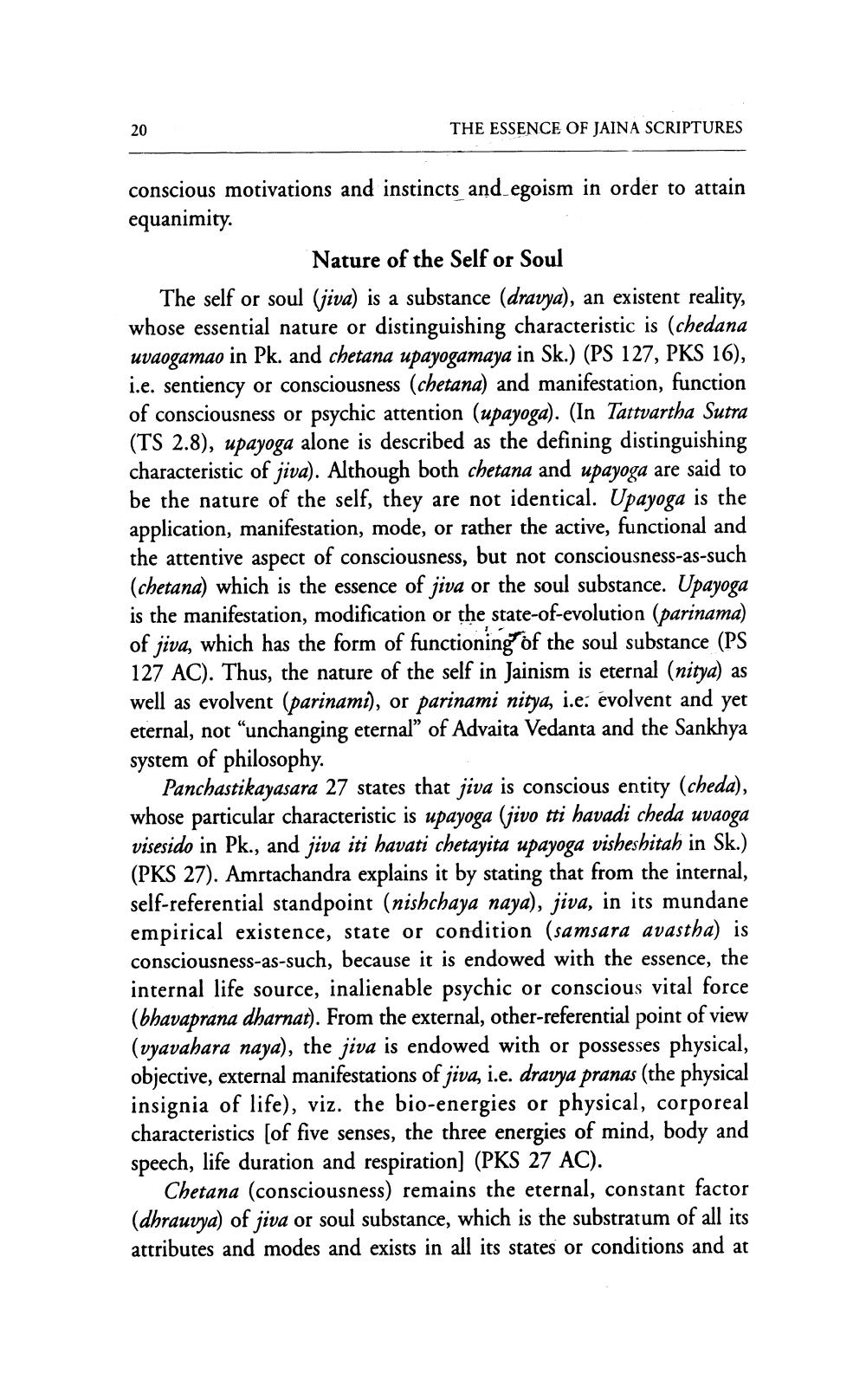________________
20
THE ESSENCE OF JAINA SCRIPTURES
conscious motivations and instincts and egoism in order to attain equanimity.
Nature of the Self or Soul
The self or soul (jiva) is a substance (dravya), an existent reality, whose essential nature or distinguishing characteristic is (chedana uvaogamao in Pk. and chetana upayogamaya in Sk.) (PS 127, PKS 16), i.e. sentiency or consciousness (chetana) and manifestation, function of consciousness or psychic attention (upayoga). (In Tattvartha Sutra (TS 2.8), upayoga alone is described as the defining distinguishing characteristic of jiva). Although both chetana and upayoga are said to be the nature of the self, they are not identical. Upayoga is the application, manifestation, mode, or rather the active, functional and the attentive aspect of consciousness, but not consciousness-as-such (chetana) which is the essence of jiva or the soul substance. Upayoga is the manifestation, modification or the state-of-evolution (parinama) of jiva, which has the form of functioning of the soul substance (PS 127 AC). Thus, the nature of the self in Jainism is eternal (nitya) as well as evolvent (parinami), or parinami nitya, i.e. evolvent and yet eternal, not "unchanging eternal" of Advaita Vedanta and the Sankhya system of philosophy.
Panchastikayasara 27 states that jiva is conscious entity (cheda), whose particular characteristic is upayoga (jivo tti havadi cheda uvaoga visesido in Pk., and jiva iti havati chetayita upayoga visheshitah in Sk.) (PKS 27). Amrtachandra explains it by stating that from the internal, self-referential standpoint (nishchaya naya), jiva, in its mundane empirical existence, state or condition (samsara avastha) is consciousness-as-such, because it is endowed with the essence, the internal life source, inalienable psychic or conscious vital force (bhavaprana dharnat). From the external, other-referential point of view (vyavahara naya), the jiva is endowed with or possesses physical, objective, external manifestations of jiva, i.e. dravya pranas (the physical insignia of life), viz. the bio-energies or physical, corporeal characteristics [of five senses, the three energies of mind, body and speech, life duration and respiration] (PKS 27 AC).
Chetana (consciousness) remains the eternal, constant factor (dhrauvya) of jiva or soul substance, which is the substratum of all its attributes and modes and exists in all its states or conditions and at




